Assistant Principal's Report
Katrina Spicer - Wellbeing and Inclusion

Assistant Principal's Report
Katrina Spicer - Wellbeing and Inclusion
STAFF CARPARK
Please be mindful that the staff carpark is for staff only between the hours of 8am and 4pm. Parents should not be using the staff carpark to drop off and pick up their children between these times.
Please also be mindful that parents and students should not walk through the staff carpark at drop off and pick up time, as there is a danger of cars driving in and out. I personally witnessed a near miss a couple of days ago when a car drove at speed through the carpark at pick up time, whilst several families were walking through the carpark. We encourage families to please use the path outside OSHC instead of cutting across the carpark.
SWPBS REWARDS
This term's SWPBS rewards will be Toy Day for the students in years P-2 and Extra Long Lunch Play for students in years 3-6. Class teachers in P-2 will communicate with families regarding Toy Day. All SWPBS rewards will occur in the last couple of days of term.
PREP FATHER'S DAY CELEBRATION
Last Friday, our Prep students invited their fathers or another special person to celebrate Father’s Day with a special morning tea. Our dads joined us for a fun scavenger hunt around the school and then worked together with their child to build a helicopter and a plane. There was lots of laughter, excitement and some very impressive flying skills on display! It was a wonderful way to celebrate the special people in our lives and the students loved sharing this time with their dads.


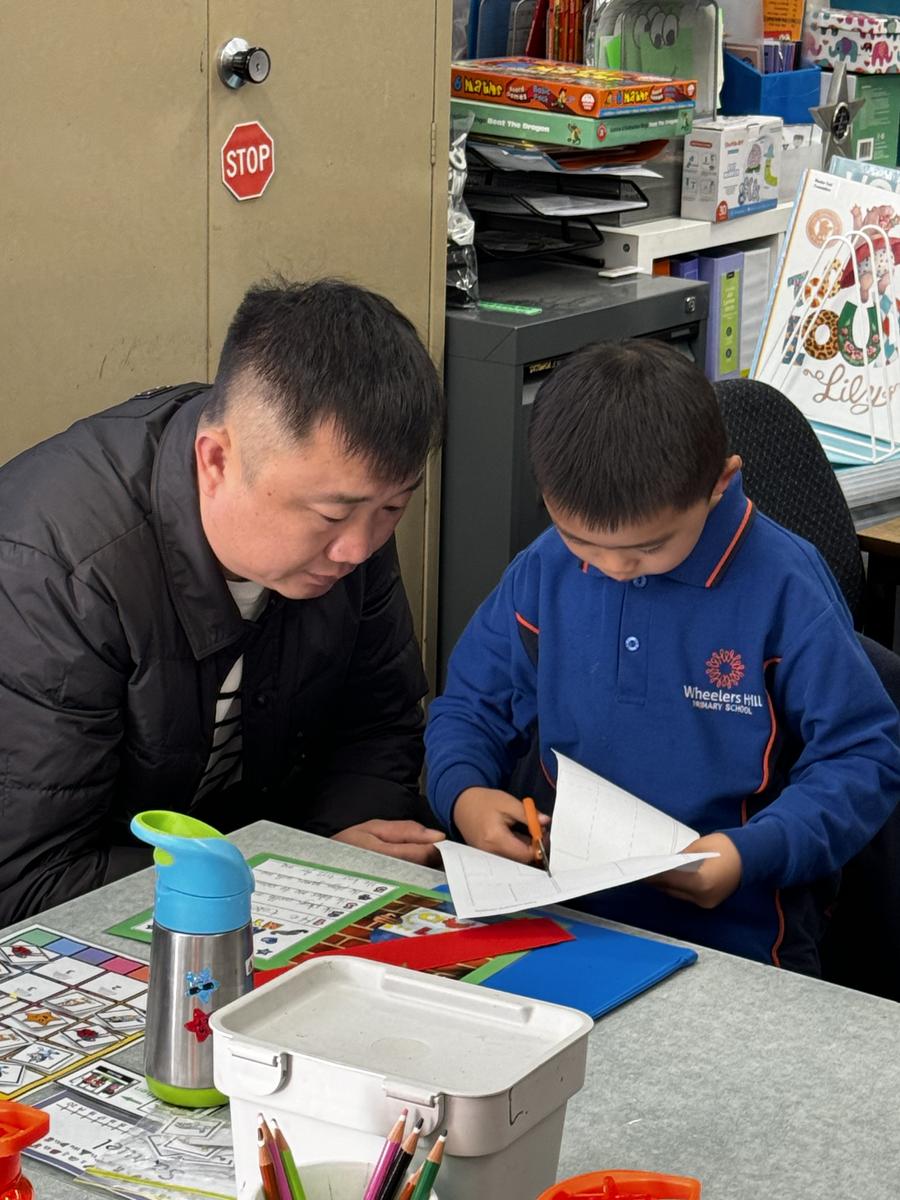

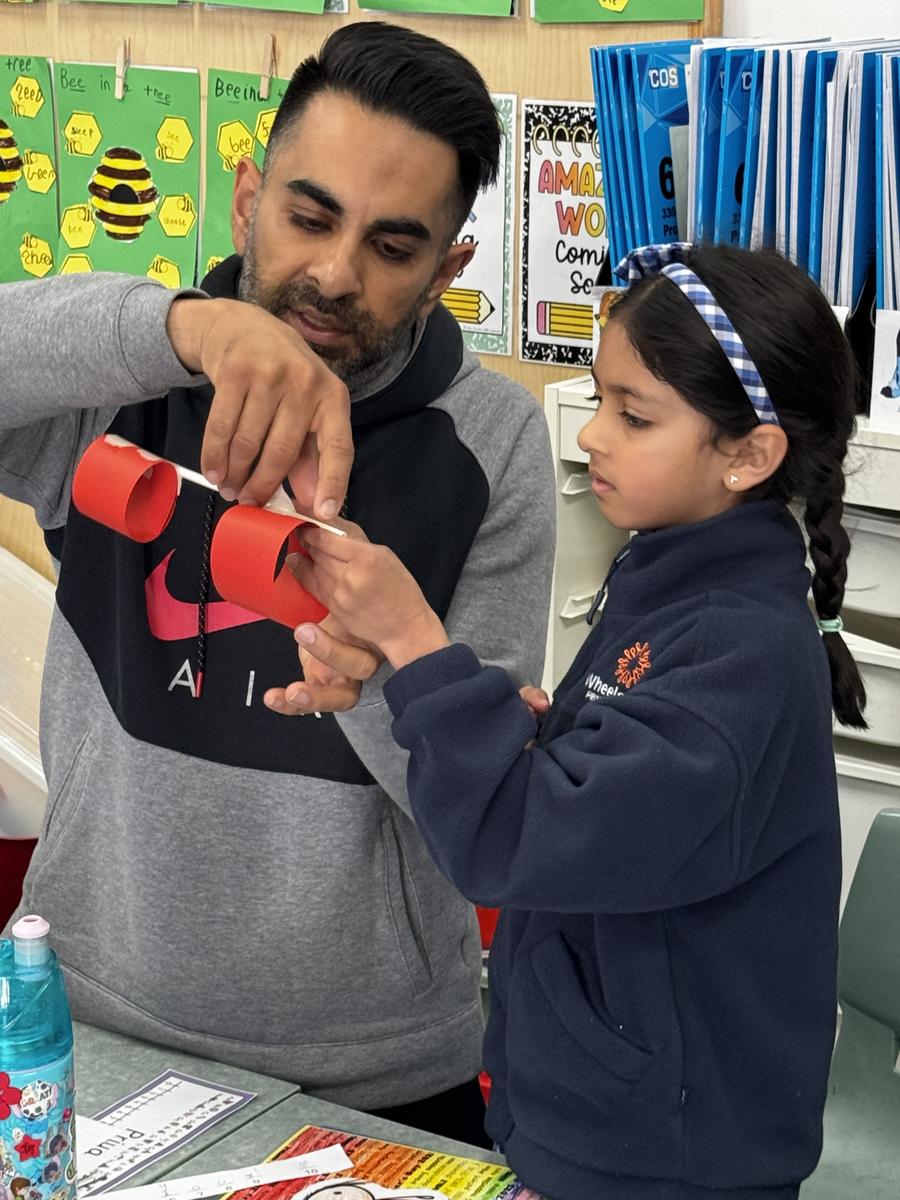


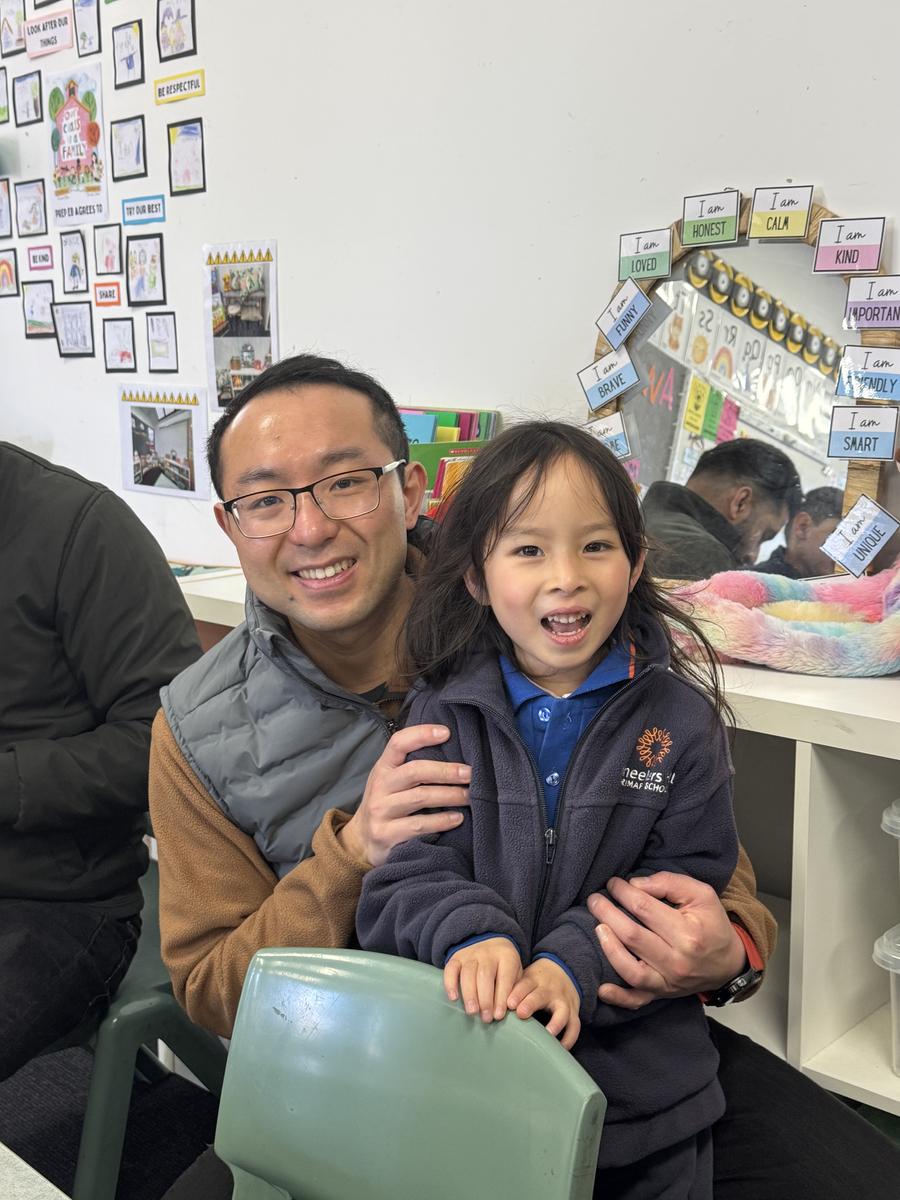
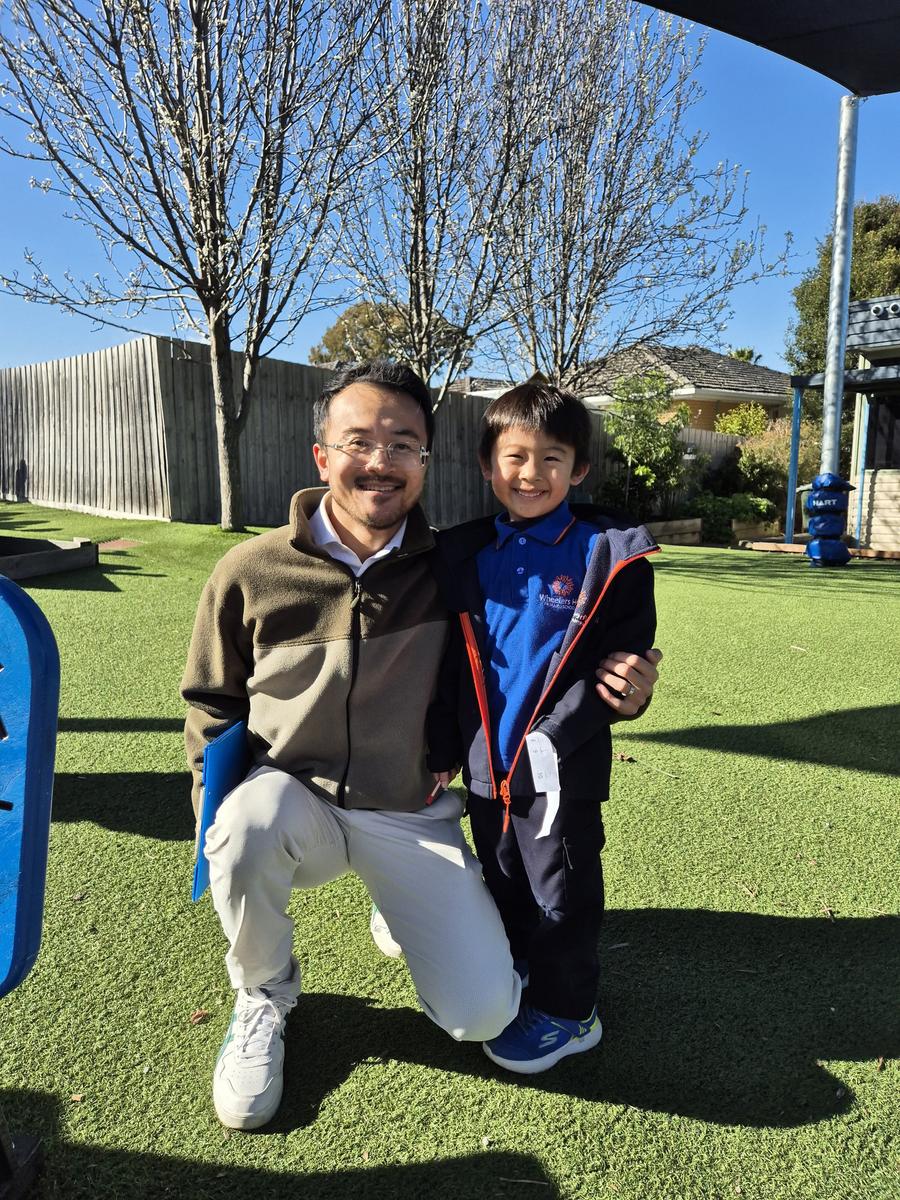
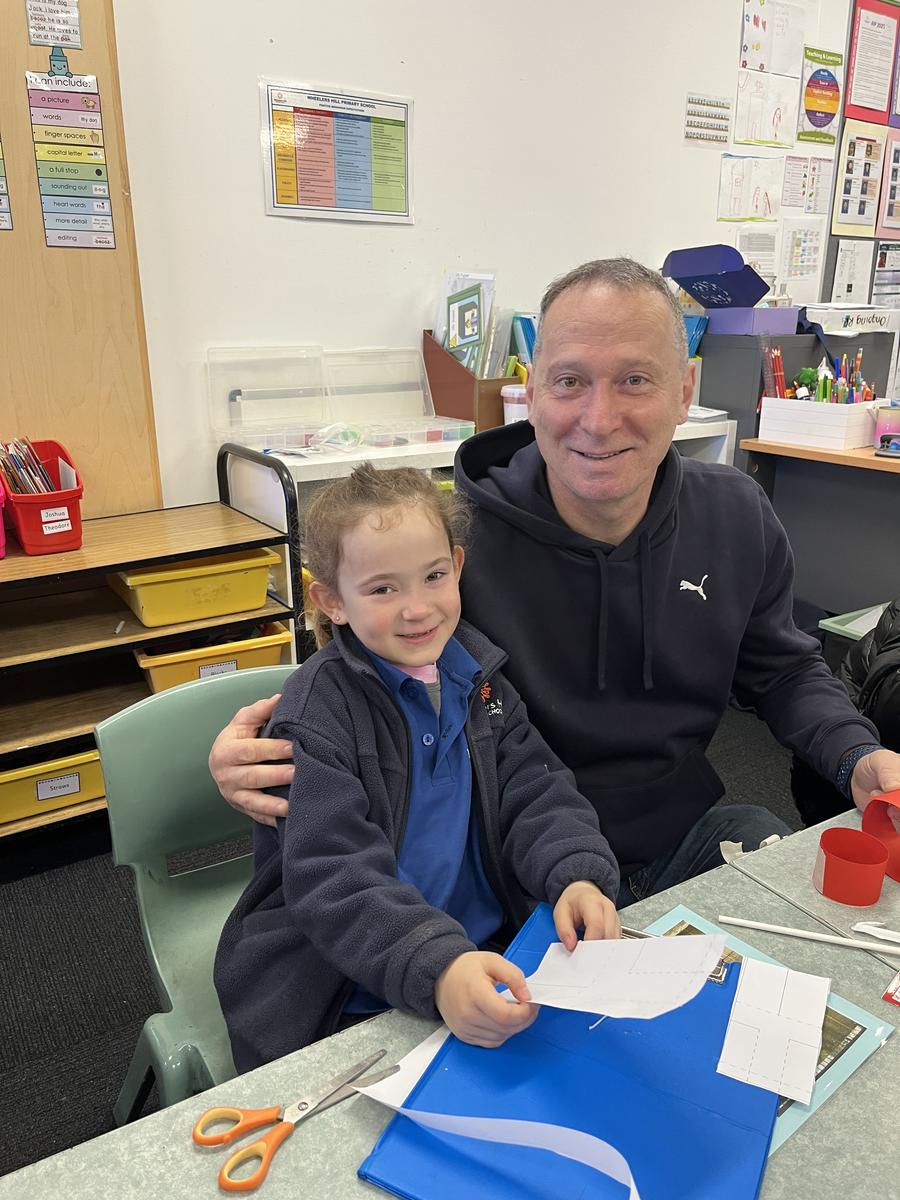
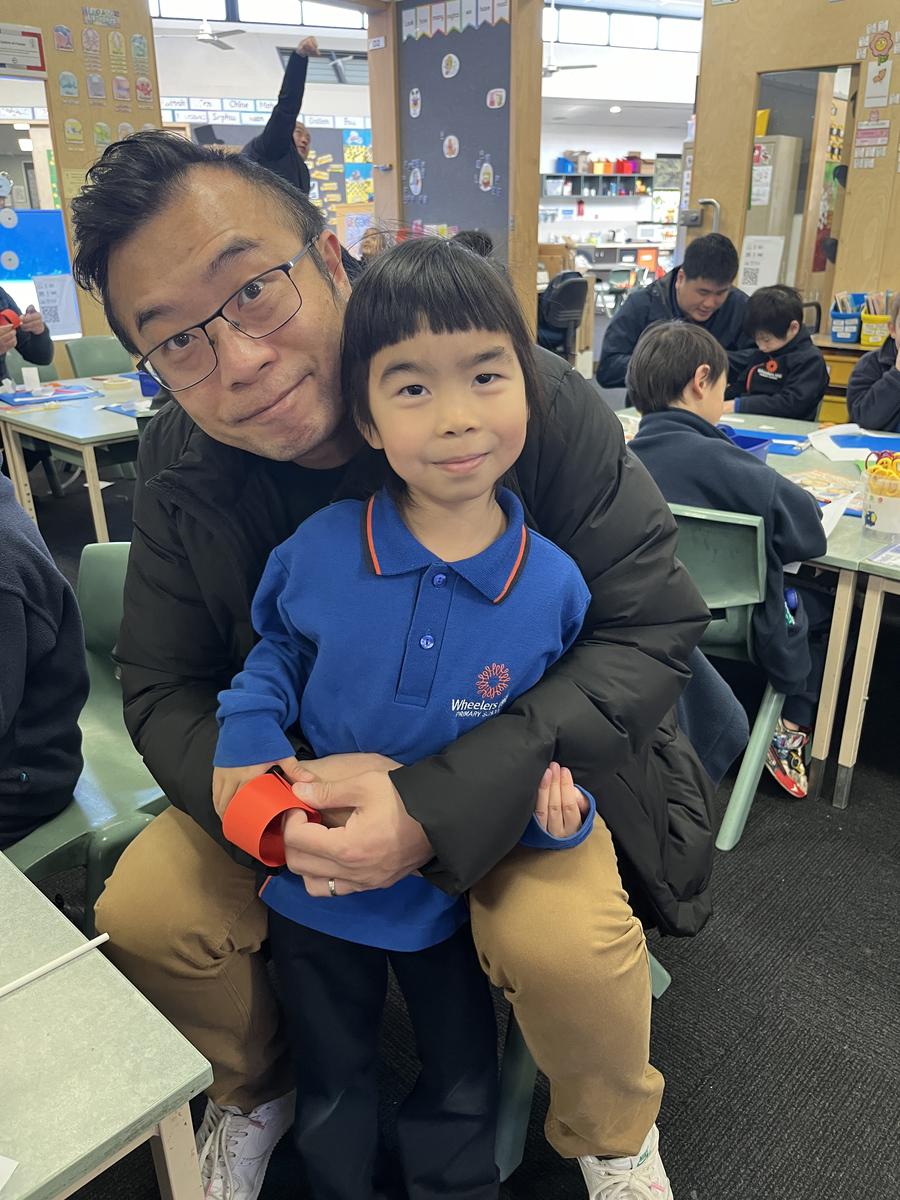















Katrina Spicer
Assistant Principal for Wellbeing and Inclusion
katrina.spicer@education.vic.gov.au


Sometimes, it's not the big meltdowns or obvious problems that cause the most stress in family life - it's the little things. The constant whining. The bedtime battles. That one child who just won't listen. It's these small, everyday frustrations that slowly wear us down.
This strange but common experience can be described by a psychological concept called the Region Beta Paradox: we're more likely to act on a big problem than a small one. Why? Because when something is just mildly annoying, it doesn't feel urgent. We wait. We tolerate. We tell ourselves it will pass.
Yet over time, those little issues can become big dramas - ones that might have been avoided with earlier action. Think of:
WHY THIS MATTERS FOR PARENTS
We all do it. We wait for things to get bad enough to justify action. But sometimes, by the time if feels serious, we've lost valuable time, made things harder for our child, and added unnecessary stress to the whole family.
Moreover, with our medical system and our mental health system so strained, wait times to see a mental health professional, occupational therapist, or obtain other allied health support have blown right out. The 'wait and see' approach could backfire if things become a problem, you need help, and you discover that there'll be a 6, 12 or even 24 month wait.
So how can we avoid falling into the Region Beta trap? Here are a few simple, practical ways to act sooner and support your child more effectively.
ACTION STEPS FOR PARENTS
1.Watch for Patterns, Not Just Incidents
A child over age four who has an occasional sleepless night? Normal. No real sleep for two weeks? That's a pattern. Disturbed sleep every night for three-to-six months? That's a problem. Pay attention to:
If the behaviour is consistent and causing distress or disruption, it may be time to explore support - even if it doesn't feel like an 'emergency'. Remember the three Ds. Distress. Dysfunction. Deviation from 'normal'.
2. Trust Your Gut
Sometimes, the only real sign that something's wrong is that your instincts say so. If you're feeling uneasy about your child's behaviour, development, or wellbeing, don't ignore that signal. Seek advice. Ask questions. Be persistent. One of the biggest regrets parents share is wishing they'd acted sooner.
3. Invest in your Parenting Skills
I hate to throw shade at parents... Yet sometimes our children are experiencing challenges (particularly when it comes to mood, anxiety, and even relationship) when our parenting is not quite hitting the mark. Buy a parenting book (I can recommend one, if you're stuck!), practice the skills you need, and learn to be dialed in as a parent. Often your improved self-awareness, self-regulation, empathy, or communications kills can give your child the extra support they need, and some issues will go away. That psychological security boost can be powerful.
WHEN TO SEEK HELP
If a concern persists, causes distress, or affects your child's ability to function (at school, with friends or at home), it's worth seeking professional advice - whether from a teacher, GP, psychologist or speech pathologist. You don't need a crisis to justify reaching out. Sometimes acting early prevent the crisis altogether.
WHERE TO GO TO GET THE HELP YOU NEED
If something's concerning you - even just a little - the best first step is often your GP. They can provide guidance, offer referrals, and support you with a Mental Health Care Plan if needed. You can also call Parentline, a free, confidential service staffed by trained counsellors. It's available in every Australian state and territory. They'll talk things through with you and help you work out next steps.
Depending on your concerns, other helpful contacts may include:
It's easy to overlook the small stuff. But sometimes, those little niggles - physical, cognitive, or emotional - are our early warning signs. As parents, one of the most loving things we can do is to listen - to our children and to our intuition - before the small things become big dramas.
That's the paradox, isn't it? The bigger the issue, the quicker we act. But the little things? They're easy to dismiss... until they're not so little anymore.
You don't have to remember the name Region Beta Paradox (try dropping that casually at school pickup and watch the silence). But you can remember this: when something's not quite right, act sooner. Ask for help. Stay curious.
Because doing something early almost always works out better than doing something late.

